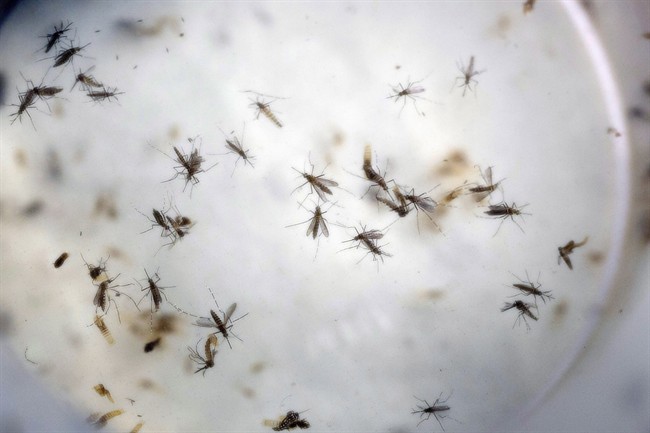Zika virus is heading to Europe in the upcoming months as summer vacations to the continent ramp up, too. In a new report, the World Health Organization lists 18 countries at risk of the mosquito-borne disease.

France is at the highest risk — global health officials project Zika is most likely to touch down there. Three geographical areas, including Madeira Island belonging to Portugal, and the Black Sea coastal areas of Georgia and the Russian Federation, were also classified as having a “high likelihood” of running into a Zika virus outbreak.
“This new evidence published today tells us that there is a risk of spread of Zika virus disease in the European Region and that this risk varies from country to country,” Dr. Zsuzsanna Jakub, WHO Regional Director for Europe, said in a statement.
READ MORE: These are the tell-tale symptoms of Zika virus, according to a new case study
“With this risk assessment, we at WHO want to inform and target preparedness work in each European country based on its level of risk. We call particularly on countries at higher risk to strengthen their national capacities and prioritize the activities that will prevent a large Zika outbreak,” she said.
The 18 European countries, from highest to lowest risk include:
- France
- Italy
- Malta
- Croatia
- Israel
- Spain
- Monaco
- San Marino
- Turkey
- Greece
- Switzerland
- Bulgaria
- Romania
- Slovenia
- Georgia
- Albania
- Bosnia and Herzegovina
- Montenegro
In total, 33 per cent of the 18 countries have a “moderate likelihood” of dealing with Zika. Another 36 countries have been classified as low, very low, or no likelihood, because these regions don’t carry the Aedes mosquitoes that transmit the virus or they don’t have suitable climate conditions for the insects.
READ MORE: Here’s what Zika virus symptoms look like in pregnant women
The WHO is calling on countries at high or moderate risk to ramp up their mosquito control measures while informing the public on how to protect themselves against infection.
The world’s largest Zika virus outbreak has been contained to Brazil with cases scattered across Latin America and the Caribbean.
Like dengue, West Nile and yellow fever, Zika virus is a mosquito-borne tropical disease, meaning the insects transmit the disease to humans.
READ MORE: What doctors know about how Zika virus potentially spreads
You can catch Zika virus by getting bitten by an infected mosquito but scientists are working quickly to study transmission through contaminated blood, sexual intercourse and even from expectant mom to baby.
Cases of Zika have already been recorded in France, Portugal and Italy, but only through person-to-person transmission via sexual contact.
The WHO has already warned that Zika will touch every part of the Americas, except for Canada and Chile.
READ MORE: 5 things Canadians need to know about Zika virus
In North America, they’re projecting that most of Texas and all of Florida are “highly suitable” for Zika virus transmission.
See the full projections.
carmen.chai@globalnews.ca
Follow @Carmen_Chai


Comments